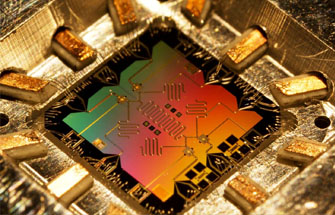As its etymology suggests, cryptography relates to “writing” and “hiding”. So it is closely linked to the notions of integrity, authenticity and confidentiality. From the confidentiality point of view, it refers to techniques transforming a legible message into a message that cannot be read by those for whom it is not intended by using formulas or keys.
Encryption is a cryptographic process making it impossible, in theory, to read a message without a decryption key. Herein lies the difference between “decrypting” and “decoding”: decrypting involves finding the original message using a decryption key, while decoding involves finding it without having the key.
In this regard, a distinction is often made between symmetric encryption algorithms based on a single key and asymmetric encryption algorithms based on two keys: a public key to encrypt and a private key to decrypt. For example, the type of encryption commonly used to secure online banking transactions is asymmetric or public-key encryption.
So, if a malicious individual cannot obtain the decryption key they can use certain methods such as “brute force attacks” that involve finding the decryption key by going through every possible combination or using algorithms with the right properties. Yet, the best modern decryption keys are extremely long requiring significant computing power and/or computing time.
This is where the notion of quantum computing comes in.
Based on the quantum properties of matter, the quantum computer opens up new opportunities that standard computers are just not capable of. Unlike the bit, which can only have one value at a time (0 or 1), the quantum bit (or qubit) uses the principle of quantum superposition to exist in two states at once (0 and 1). A quantum computer can therefore perform calculations much faster than a standard computer.
In this respect, some authors often allude to the notion of “quantum supremacy” that will mark the moment when standard computers can no longer compete with quantum computers. Many thresholds regarding the number of qubits that must be reached have been considered, while several companies claim they are already on the cusp of crossing this threshold (including IBM, Google, Intel).
And, if they are implemented in a quantum computer, certain quantum algorithms like the Shor algorithm for instance are likely to severely affect many encryption systems vulnerable to public-key factorisation techniques.
Yet the issue seems serious enough that research devoted to post-quantum cryptography, cryptography capable of resisting an attacker with a quantum computer, is being developed.
So, while cryptography has significantly developed between the Ancient times and the modern day, it is more than likely that this field still has plenty of secrets to reveal.






